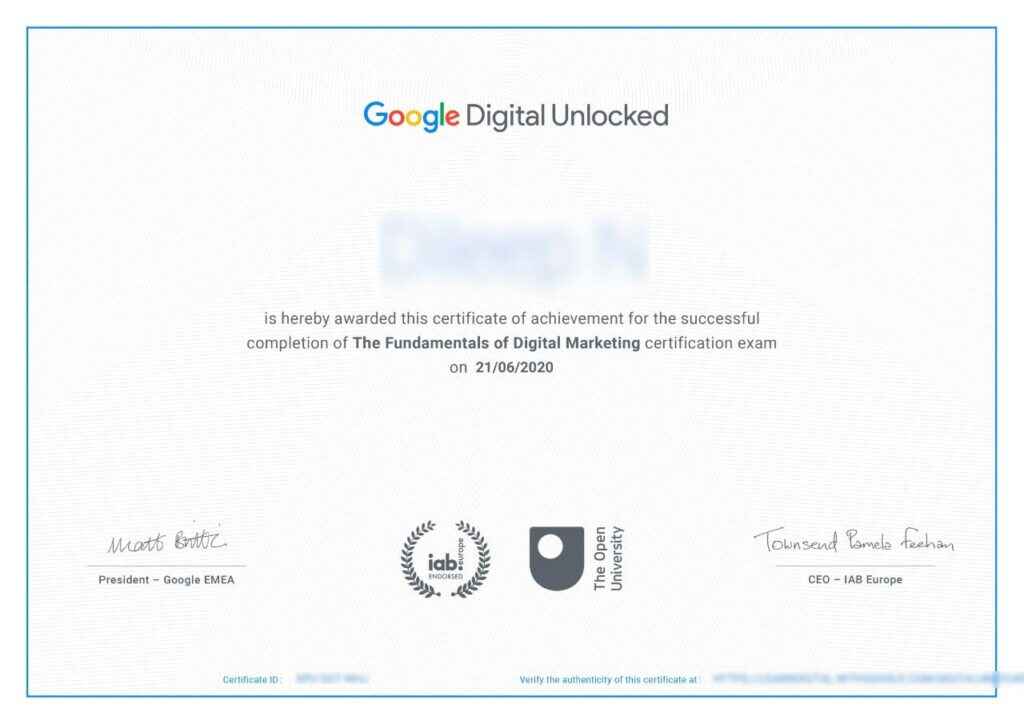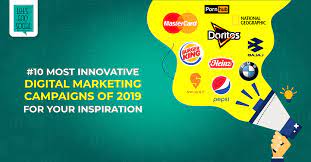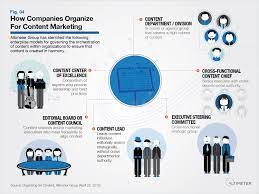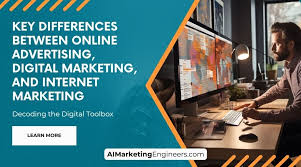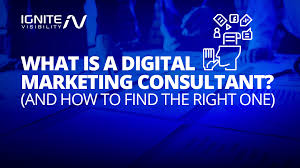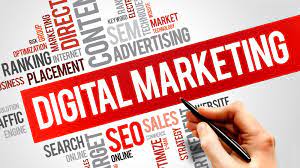The Benefits of Taking Google’s Digital Marketing Course
In today’s digital age, having a strong understanding of digital marketing is essential for anyone looking to succeed in the online world. Google, one of the leading tech giants, offers a comprehensive digital marketing course that provides valuable insights and skills to help individuals and businesses thrive in the digital landscape.
What Does the Course Cover?
Google’s digital marketing course covers a wide range of topics essential for anyone looking to excel in online marketing. From search engine optimisation (SEO) and pay-per-click advertising to social media marketing and email campaigns, the course delves into various aspects of digital marketing strategies and best practices.
Key Benefits of Taking the Course
Industry-Recognised Certification: Upon successful completion of the course, participants receive a certification from Google, which is highly regarded in the industry and can enhance your credibility as a digital marketer.
Practical Knowledge: The course is designed to provide practical skills that you can immediately apply to real-world digital marketing campaigns. Whether you are a beginner or have some experience in the field, you will gain valuable insights that can help you succeed.
Updated Content: Given Google’s position at the forefront of technology and innovation, you can be assured that the course content is up-to-date with the latest trends and best practices in digital marketing.
Flexibility: The course is available online, allowing you to study at your own pace and schedule. This flexibility makes it convenient for working professionals or those with busy schedules to pursue their learning goals.
Who Can Benefit from the Course?
The Google digital marketing course is ideal for aspiring marketers, business owners looking to expand their online presence, freelancers seeking to enhance their skill set, or anyone interested in learning more about digital marketing strategies.
In Conclusion
By enrolling in Google’s digital marketing course, you not only gain valuable knowledge and skills but also open up new opportunities for career advancement and business growth. Embrace the power of digital marketing with Google’s comprehensive course and take your online presence to new heights.
Top 10 FAQs About Google’s Digital Marketing Course: What You Need to Know
- How many hours is Google digital marketing course?
- Is Google digital marketing exam difficult?
- Is Google digital marketing Class worth it?
- How do I become a digital marketer on Google?
- Can you get a job with Google digital marketing certificate?
- Can Google digital marketing certificate get you a job?
- Is digital marketing by Google is free?
- Is Google’s digital marketing course good?
- How much is Google digital marketing professional certificate?
- Is Google digital marketing course legit?
How many hours is Google digital marketing course?
The duration of Google’s digital marketing course can vary depending on the individual’s pace of learning and commitment. On average, the course is designed to be completed in around 40 hours. However, participants have the flexibility to study at their own convenience and progress through the material at a speed that suits their schedule. Whether you choose to dedicate a few hours each day or complete it in a more intensive timeframe, the course offers a comprehensive learning experience that equips you with valuable skills in digital marketing.
Is Google digital marketing exam difficult?
The difficulty level of the Google digital marketing exam can vary depending on an individual’s level of experience and preparation. For those with a solid understanding of digital marketing concepts and practical experience, the exam may be challenging but manageable with thorough study and practice. However, for beginners or those new to the field, the exam may pose a greater level of difficulty requiring more time and effort to prepare adequately. Overall, with dedication and commitment to learning the material, individuals can overcome the challenges posed by the Google digital marketing exam and achieve success in obtaining their certification.
Is Google digital marketing Class worth it?
When considering whether the Google digital marketing course is worth it, it’s important to weigh the benefits it offers. With industry-recognised certification, practical knowledge that can be applied immediately, up-to-date content reflecting the latest trends, and the flexibility of online learning, the course provides valuable insights for aspiring marketers, business owners, freelancers, and anyone interested in digital marketing. The credibility of a certification from Google and the potential for career advancement make the course a worthwhile investment in enhancing your skills and expanding your opportunities in the digital marketing landscape.
How do I become a digital marketer on Google?
To become a digital marketer on Google, individuals can start by enrolling in Google’s digital marketing course to gain valuable knowledge and skills in the field. This course covers essential topics such as search engine optimisation (SEO), pay-per-click advertising, social media marketing, and email campaigns, providing a solid foundation for aspiring digital marketers. Additionally, gaining practical experience through internships, freelance projects, or working with digital marketing agencies can help individuals apply their learning in real-world scenarios. Networking with industry professionals and staying updated on the latest trends and tools in digital marketing are also crucial steps towards becoming a successful digital marketer on Google.
Can you get a job with Google digital marketing certificate?
Obtaining a Google digital marketing certificate can significantly enhance your job prospects in the digital marketing industry. While the certificate itself does not guarantee a job at Google specifically, it holds substantial value and credibility in the industry. Employers recognise Google’s certification as a testament to your expertise and commitment to mastering digital marketing skills. With this certification, you demonstrate your proficiency in various aspects of digital marketing, making you a more attractive candidate for job opportunities across different organisations and sectors within the field.
Can Google digital marketing certificate get you a job?
The Google digital marketing certificate can indeed enhance your job prospects in the competitive digital marketing industry. While holding this certification may not guarantee a job outright, it demonstrates to potential employers your commitment to learning and mastering essential digital marketing skills. Employers often value certifications from reputable sources like Google, as they signify a certain level of expertise and proficiency in the field. By showcasing your Google digital marketing certificate on your resume or LinkedIn profile, you can differentiate yourself from other candidates and increase your chances of securing a job in digital marketing.
Is digital marketing by Google is free?
When it comes to Google’s digital marketing course, one of the frequently asked questions is whether it is free of charge. The answer is yes – Google’s digital marketing course is indeed free to enrol in and access. This accessibility makes it a valuable resource for individuals looking to enhance their digital marketing skills without any financial barriers. By offering this course for free, Google aims to empower aspiring marketers, business owners, and anyone interested in the world of digital marketing with the knowledge and tools needed to succeed in the online landscape.
Is Google’s digital marketing course good?
Many individuals often wonder, “Is Google’s digital marketing course good?” The answer is a resounding yes. Google’s digital marketing course is highly regarded in the industry for its comprehensive content, practical approach, and industry-recognised certification. With up-to-date content, flexible online learning options, and a focus on practical knowledge that can be applied to real-world scenarios, the course equips participants with valuable skills and insights to excel in the ever-evolving digital marketing landscape. Whether you are a beginner looking to kickstart your career in digital marketing or a seasoned professional seeking to enhance your expertise, Google’s digital marketing course is an excellent choice for anyone looking to upskill and stay ahead in the competitive online marketplace.
How much is Google digital marketing professional certificate?
The cost of obtaining the Google Digital Marketing Professional Certificate varies depending on the platform through which you choose to undertake the course. Typically, the course fee ranges from £39 to £99. However, Google often offers financial assistance and scholarships to make the course more accessible to individuals from diverse backgrounds. It is advisable to check Google’s official website for the most up-to-date information on pricing and any available discounts or financial aid options.
Is Google digital marketing course legit?
The legitimacy of Google’s digital marketing course is a common concern among individuals considering enrolling in the program. Rest assured, Google’s digital marketing course is indeed legitimate and highly reputable in the industry. With Google being a leading authority in the digital realm, the course offers valuable insights, practical skills, and an industry-recognised certification upon completion. By choosing to undertake this course, you can be confident in the quality of education and expertise you will gain to excel in the dynamic field of digital marketing.

